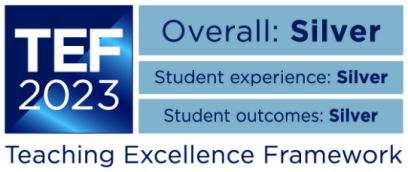HNC Civil Engineering

Our HNC Civil Engineering course is designed to provide you with a solid grounding and an exceptional head start in this dynamic field.
- Level
- 4
- Entry Point
- Sep 2026
- Duration
- Part Time, 2 years
- Venue
- City College Norwich campus
- CCN Course Code
- G0061
Reasons to study
this course
This course provides the core skills required for a range of careers in construction. A balance of employability skills and the knowledge essential for those with entrepreneurial, employment or academic ambitions will be offered. You will develop as a professional, self-reflecting individual able to meet the demands of employers in the construction sector and adapt to a constantly changing world. The qualification aims to widen access to higher education and enhance your career prospects.
The course content and assessments are designed to align with professional body standards, helping you grow into skilled and confident practitioners ready for the future. The course has been developed with the following institutions:
- Chartered Association of Building Engineers (CABE)
- Chartered Institute of Architectural Technologists (CIAT)
- Chartered Institution of Highways & Transportation (CIHT)
- Institute of Highway Engineers (IHE)
- Institution of Civil Engineers (ICE)
- Institution of Structural Engineers (iStructE)
- Royal Institution of Chartered Surveyors (RICS)
Anna Hare - Course Leader HNC Civil Engineering
My name is Anna and I am the course leader for the HNC Civil Engineering. I am a Chartered Quantity Surveyor with a diverse background in construction. I trained as a Quantity Surveyor, gaining valuable experience working in traditional quantity surveying and project management roles. I have worked for private surveying practices and construction contractors, experiences which have given me firsthand insight into the practical challenges and complexities of delivering successful projects.
I, and the rest of the teaching team, are passionate about combining our industry knowledge and teaching experience to provide you with practical insights and a thorough understanding of the essential skills needed to excel in the construction industry.
Contact course leaderWhere will this
course take you?
Pearson work with a range of higher education institutions around the world that recognise and accept Pearson BTEC Higher Nationals as qualifications for entry to an undergraduate degree. Many universities allow advanced entry to the second or third year of a degree, and agreements can include credit transfer, articulation and case-by case admission. You should be aware that university admission criteria are always subject to change and remain at the discretion of the institution.
This course also offers a variety of avenues for career opportunities through providing the core skills required to succeed in the construction industry.
Course structure
This course is studied part time over two years. The programme is delivered one day a week - 30 teaching weeks per year. Currently teaching days are either Mondays or Wednesdays.
Level 4 units
Construction Design Project Core
The success of any project relies on the development of a good design and the technical information to allow the project to be built. The aim of this unit is to help you to appreciate and be aware of the design process and the information required to communicate the design itself, specify and quantify materials, provide instructions for the assembly and erection, and facilitate precise costing and project management. Topics included in this unit are: project phases; construction drawing; detailing; Computer Aided Design (CAD); Building Information Modelling (BIM); schedules; specifications; bills of quantities; information collaboration. On successful completion of the unit, you will be able to analyse scenarios, make decisions and produce drawings and specifications to achieve appropriate, creative and innovative home design proposals.
Science and Materials Core
Science and material performance are intrinsically linked through the need to create structures and spaces that perform in both mechanical operation and in providing human comfort. This unit aims to support you in making material choices to achieve the desired outcomes of a brief. This is approached from the perspective of materials being fit for purpose; as defined by testing standards and properties but also by consideration of the environmental impact and sustainability. You will consider health and safety alongside the need to meet legislative requirements.
The topics covered in this unit include: health and safety; storage and use of materials; handling and problems associated with misuse and unprotected use; environmental and sustainable consideration in material choices; human comfort performance parameters. Material choice is developed through the understanding of testing procedures to establish conformity to standards and define performance properties. The performance of materials to satisfy regulations and provide appropriate comfort levels is addressed through design and calculations.
On successful completion of this unit, you will be able to make informed decisions regarding material choices, based on understanding the structural behaviour of materials established through recognised testing methods, sustainability, context of build and health and safety. You will be able to perform the calculations necessary to establish anticipated performance of the materials in use and therefore determine their compliance with regulations and suitability.
The Construction Environment Core
Construction is a complex and dynamic sector of the local, regional, national and international economy. In many countries it is a driving force in the growth of finance, property and employment. This also means that it has considerable impact on many factors beyond its direct influence on the buildings and infrastructure that are created and maintained. The construction industry is one of the major contributors to CO2 emissions. Also, the way that buildings are designed, constructed and maintained means they have an ongoing impact on the environment. Similarly, as a major employer, the industry has an ongoing impact on the working conditions of those in the sector and the way that people are educated, trained and supported through their careers. In this unit, you will explore the make-up and the impact of the construction industry on the environment and society. By exploring the roles and relationships of individuals and organisations in the construction sector, you will gain an overview of the organisational and the personal ways in which the sector works to continue to improve the built environment and limit its impact on the environment, while maintaining economic sustainability and growth.
Digital Applications for Construction Information Core
Achieving successful projects in the built environment requires a range of different types of information to describe the project, quantify the materials, provide clear instructions for assembly and erection, and allow for accurate costing and management. Throughout the process of design, construction and post-occupancy management, information is critical. Central to construction information is the production of construction drawings. These provide the geometric definition of a project through the use of graphic conventions. Most other forms of construction information will rely, to a greater or lesser degree, on reference to construction drawings. Therefore, the production of accurate and clearly defined construction drawings is a critical part of the overall construction information package. Digital applications play a key role in the production of construction drawings. They provide a way to manage drawing information and make changes with greater efficiency and can be shared readily through a variety of digital communication systems. In this unit you will develop the skills to needed produce accurate and consistent construction information using industry-standard software. On completion of the unit, you will be able to produce a construction information package. Successful achievement of the unit, may also lead to vendor certification.
Mathematics for Construction Core
The aim of this unit is to develop your knowledge and understanding of the mathematical principles and theories that underpin many aspects of construction technology, structures and materials. You will be introduced to mathematical methods and statistical techniques so that they can analyse and solve problems in a construction engineering context. Topics included in this unit are: trigonometry and algebraic mathematical techniques; matrices; statistical techniques; differential and integral calculus; binomial and normal distribution; dimensional analysis; arithmetic progressions; vector analysis. On successful completion of this unit, you will be able to employ mathematical methods in a variety of contextualised examples; use analytical and computational methods to evaluate and solve engineering construction problems; interpret data using statistical techniques and apply calculus techniques. you will gain crucial employability skills such as critical thinking, problem solving, analysis, reasoning and data interpretation.
Civil Engineering Technology Core
This unit explores the role of professional civil engineers, their essential involvement in the construction and maintenance of infrastructure, and the key technologies they apply. The technologies and processes of civil engineering in the development of highways, bridges and substructures are crucial in supporting contemporary societies. Topics included in this unit are: earthwork activities; temporary and permanent dewatering procedures; methods and techniques used to create substructures, highways and superstructures and the common hazards; technical problems and solutions associated with modern civil engineering activities. On successful completion of this unit, you will be able to describe, analyse and evaluate modern civil engineering procedures, apply their skill and knowledge to the design of infrastructure, and produce solutions to address hazards and problems encountered in civil engineering projects.
Principles of Structural Design Core
Buildings, bridges, roads and many other types of man-made structures are critical to the economic and social wellbeing of our society. We rely on these structures to provide us with suitable spaces and infrastructure to support our daily lives. In this unit, you will explore the fundamental principles of structural design, codes of practice and standards required to construct safe, effective static structures commonly used in today’s building and infrastructure projects. Topics included in this unit are: methods and techniques used to determine bending moments and shear forces in simply supported steel and reinforced concrete beams; deflection in simply supported steel beams; axial load carrying capacity of steel and reinforced concrete columns. On successful completion of this, unit you will be able to determine and analyse forces within fixed structures and understand the fundamental concepts of structural design.
Geotechnics & Soil Mechanics Core
This unit explores the essential relationship between the things we construct and the capacity of the ground to support these constructions. The ability to understand, analyse and develop solutions related to soil and rock is a key aspect of the design and construction of buildings and infrastructure. Topics included in this unit are: rock type; soil description and classification; methods and techniques used when undertaking site investigations and laboratory testing; determination of soil properties; the importance of these geotechnical procedures and resultant findings to civil engineers. On successful completion of this unit, you will be able to analyse and evaluate modern geotechnical methods and apply these skills and knowledge to the initial design of infrastructure.
Course details
Assessment methods
You will be assessed through a range of mediums, to reflect the variety of skills and knowledge gained as you progress. An example of some of these methods include: assignments, presentations, project work and exams.
Awarded by
This course is awarded by Pearson Education Ltd. and regulated by The Office for Students.


Entry requirements
GCSEs
A minimum of GCSE Maths and English at grade 4/C is required
BTECs
A BTEC Level 3 qualification in Civil Engineering or other subject related Level 3 qualification are accepted
A Levels
a GCE Advanced Level profile that demonstrates strong performance in a relevant subject or adequate performance in more than one GCE subject
Access to HE Diplomas
Access to Higher Education Diplomas are accepted
Mature Students
Mature applicants, who do not have relevant UCAS points, are welcome if you can demonstrate appropriate qualifications and suitable experience. They will be reviewed on a case-by-case basis, but should demonstrate evidence of an appropriate qualification, experience in the field or a strong interest.
Course fees
HNC per 15 credit unit: £882 for UK students, £1,066 for international students.
HNC total: £7,056 for UK students, £8,526 for international students.
Pearson Registration Fee
In addition to the course fees, there is also a Pearson registration fee, which they have not yet set for 2026, which will be charged separately to the tuition fees above.
As a guide, the 2024/25 BTEC Level 4 and 5 Higher National Student Registration (HTQ HNC) fees were £269.90 in year one, with a further £24 learner registration in each subsequent year of study.
Other course costs
Pearson Registration Fee
In addition to the course fees, there is also a Pearson registration fee, which has not yet been set for 2026/27. This will be charged separately to the tuition fees above.
As a guide, the 2025/26 BTEC Level 4 Higher National Student Registration HNC fees were £278 in year one, with a further £25 learner registration fee in each subsequent year of study.
Employer Sponsorship
If your course fees are being sponsored by your employer, please be aware that CITB offer some funding to support technical training for employers in the Construction sector; please see their website for more details.
We were awarded a TEF Silver rating overall in 2023, achieving this for both student experience and student outcomes.

Search courses
Search CCN HE




